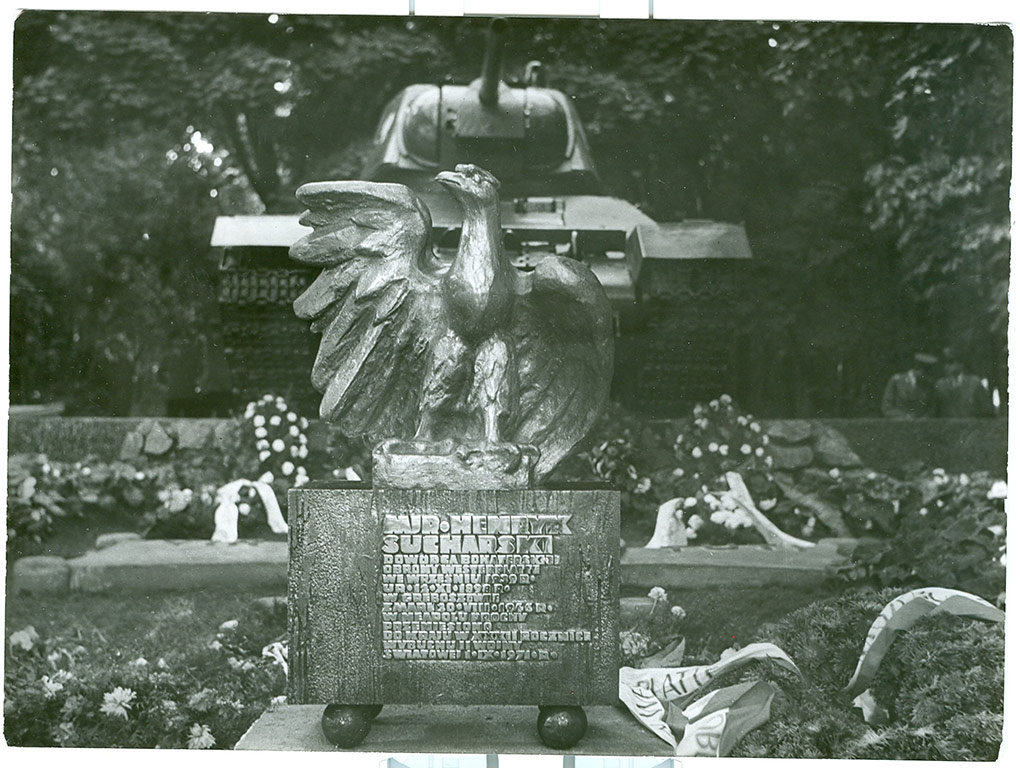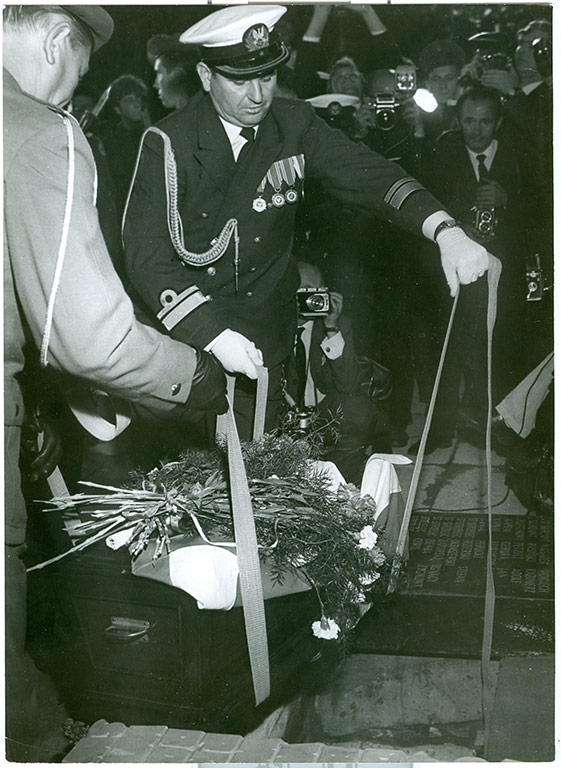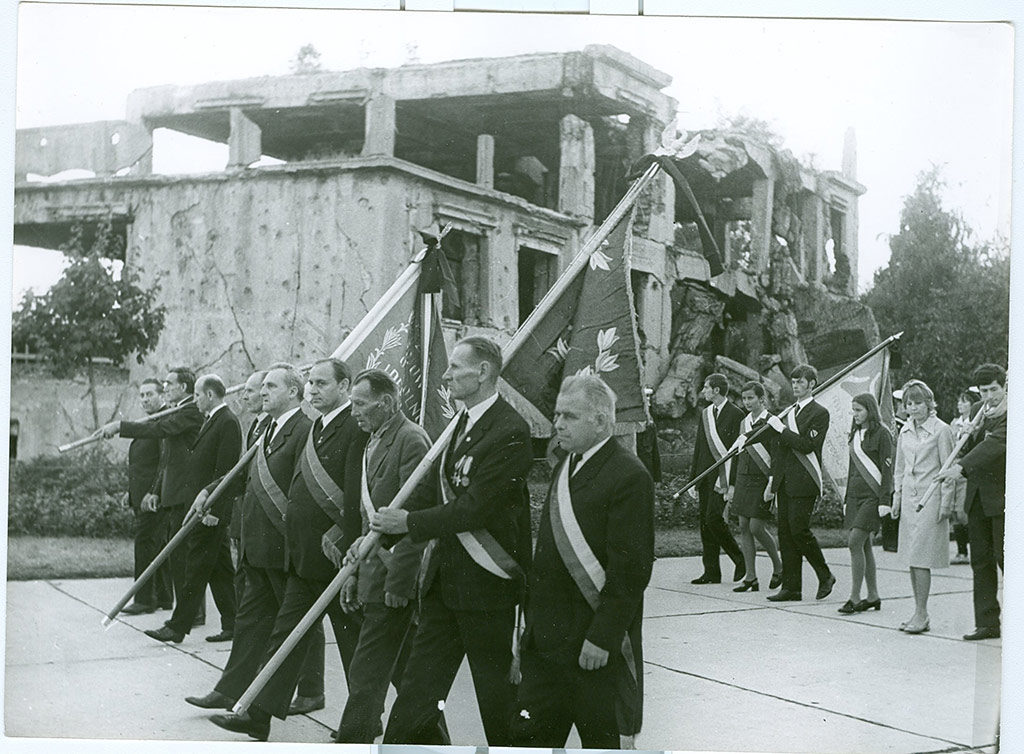- Cemetery
- DK91 1, 80-542 Gdańsk, Pologne
In 1939 Major Sucharski commanded the small garrison that heroically defended the Westerplatte peninsula during the first week of the German invasion of Poland. In 1971 his ashes were reburied at the Westerplatte cemetery. The huge turn-out and the emotional public response heralded the importance of the Second World War memories for thousands of Poles.
After the Second World War the ruins of Gdańsk, as well as Pomerania, became part of Poland. But the liberation from the German occupation also marked the beginning of dependency on the Soviet Union.
In 1946, a small cemetery for the heroic Polish defenders of the Gdańsk Transit Depot was inaugurated at the Westerplatte peninsula, but in the Stalinist period it became inconvenient to the Communists as a symbol of the struggle of ‘bourgeois’ Poland. But the defence of Westerplatte had gained an exceptional place in the Polish collective memory, whether the Communist government liked it or not. Its importance became manifest by the size of the crowd that gathered to pay its respects at the reburial of Major Sucharski’s ashes on 1 September 1971. Sucharski’s urn was restored to Gdańsk from Italy, where he had died in 1946.
Ironically, the decision to rebury the ashes of Major Sucharski was made by the Communist rulers, who were worried about growing tension between workers and the government, that had already resulted in street fights. The Communists wanted to sedate the Polish public opinion by offering unity based on national remembrance. But the result was just opposite: the spontaneous mass homage to Sucharski made the Polish citizens aware that they could influence politics. In the end, they would successfully revolt against Communism.



